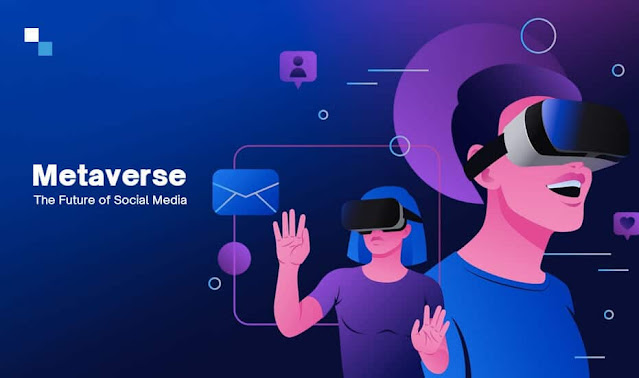The Metaverse and Social Connection: A New Frontier for Human Relationships
The metaverse, a collective virtual shared space created by the convergence of virtually enhanced physical reality and physically persistent virtual
The Potential for Deeper Connections
The metaverse has the potential to foster deeper and more meaningful connections between people. In virtual environments, users can overcome geographical barriers and engage in shared experiences that transcend physical limitations. This can lead to the formation of strong social bonds and communities, even among individuals who would otherwise never have met.
Moreover, the metaverse can provide a safe and inclusive space for people to connect. Virtual avatars can allow users to express themselves freely and without judgment, creating a sense of belonging and acceptance. This can be particularly beneficial for individuals who may feel marginalized or isolated in the physical world.
Social Interaction and Collaboration
The metaverse offers a variety of platforms for social interaction and collaboration. Users can participate in virtual events, games, and activities, allowing them to connect with people from all walks of life. This can foster a sense of shared purpose and community.
Additionally, the metaverse can facilitate collaboration on projects and initiatives. Virtual teams can work together seamlessly, regardless of their physical location. This can lead to increased productivity, innovation, and global cooperation.
Challenges and Considerations
While the metaverse offers tremendous potential for social connection, it also presents significant challenges. One of the main concerns is the potential for social isolation. If people spend too much time in virtual worlds, they may neglect their real-world relationships and social interactions.
Another challenge is the risk of cyberbullying and harassment in virtual environments. It is essential to implement measures to protect users from online abuse and promote a positive and inclusive culture within the metaverse.
Furthermore, the metaverse raises questions about privacy and data protection. As users interact with virtual worlds, they generate vast amounts of personal data. It is crucial to ensure that this data is protected and used responsibly.
The Future of Social Connection
The metaverse is a rapidly evolving landscape, and it is difficult to predict its long-term impact on human relationships. However, it is clear that virtual worlds have the potential to revolutionize the way we connect and collaborate.
As technology continues to advance, we can expect the metaverse to become even more immersive and realistic. This will likely lead to even deeper and more meaningful connections between people.
However, it is essential to approach the metaverse with a critical eye and address the challenges associated with its development. By doing so, we can harness the potential of this new technology to create a more connected and inclusive world.
Beyond Social Connection
The metaverse has the potential to transform not only our social interactions but also the way we learn, work, and entertain ourselves. For example, virtual reality can be used to provide immersive educational experiences, facilitate remote collaboration, and create new forms of entertainment.
As the metaverse continues to evolve, it is likely to have a profound impact on our lives in ways that we cannot yet fully imagine. By embracing this new technology and addressing its challenges, we can create a future where virtual worlds enhance our human experiences and bring us closer together.
Expanding on the Potential of the Metaverse
In addition to the benefits mentioned above, the metaverse has the potential to:
- Promote economic development: By creating new opportunities for businesses and entrepreneurs, the metaverse can stimulate economic growth.
- Advance scientific research: Virtual laboratories and simulations can accelerate scientific discovery and innovation.
- Enhance healthcare: The metaverse can be used for remote consultations, patient education, and even virtual surgery.
- Foster cultural exchange: By connecting people from different backgrounds and cultures, the metaverse can promote understanding and tolerance.
However, to fully realize the potential of the metaverse, it is essential to address the challenges and ethical concerns associated with this technology. This includes ensuring that the metaverse is accessible to all, protecting user privacy, and preventing the spread of misinformation.
As the metaverse continues to develop, it is important to engage in ongoing discussions about its potential benefits and risks. By working together, we can shape the future of this technology in a way that benefits society as a whole.
Further Considerations
- Digital Divide: Ensuring that everyone has access to the metaverse is crucial to prevent further social and economic disparities. Efforts must be made to bridge the digital divide and provide opportunities for all individuals to participate in this new virtual world.
- Ethical Implications: The development and use of the metaverse raise ethical questions about privacy, data ownership, and the potential for manipulation. It is essential to establish ethical guidelines and regulations to protect users and ensure the responsible development of the metaverse.
- Long-Term Impact: The long-term impact of the metaverse on human relationships and society is still unknown. It is important to monitor the development of the metaverse and assess its impact on individuals and communities.
- Integration with Other Technologies: The metaverse is likely to be integrated with other emerging technologies, such as artificial intelligence, blockchain, and the Internet of Things. This will create new opportunities and challenges for the development and use of virtual worlds.
By carefully considering these factors, we can ensure that the metaverse is developed and used in a way that benefits society and promotes human flourishing.

